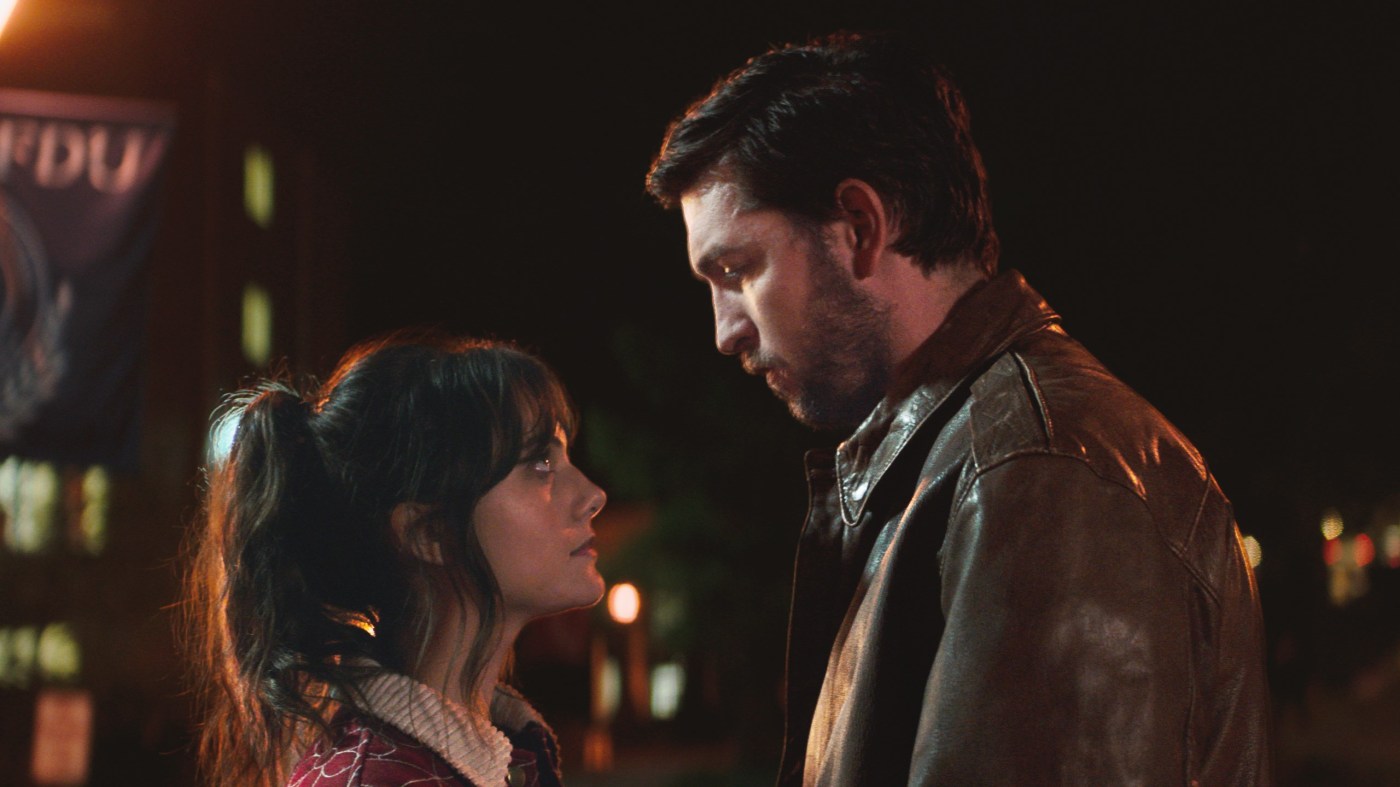
‘Cat Person’ navigates uncharted waters of dating
With it’s close-up look at the invisible, often unfathomable gulf between the sexes, “Cat Person” manages laughs and horror.
Margot (Emilia Jones of “Coda”), 18 and in school, works at a movie theater refreshment counter and meets the much taller, who knows how much older Robert (Nicholas Braun, “Succession”).
He eventually asks her out on a date. That it does not go well is perhaps prophesied in the Margaret Atwood quote that begins Susanna Fogel’s feature film: “Men are afraid that women will laugh at them. Women are afraid that men will kill them.”
“That, in a nutshell, is what the movie is,” Fogel, 43, said in a Zoom interview. “For both actors, the subtext that’s going on underneath is an unfortunate situation. Neither one is comfortable with the other and is unable to be completely open on what they feel, what they want. Because they’re still relative strangers.
“So, every time they interact, there’s a subtext. When he’s a little bit critical, the subtext is kind of like, ‘I’m insecure and that’s why I’m trying to get it out.’ There’s always a sub layer there.
“In a successful relationship, they would just be talking and meaning what they say – and they would be able to get all of that out. But they can’t because they aren’t there yet. And they never get there until the very end.”
“Cat Person” is adapted from a celebrated 2017 New Yorker short story by Kristen Roupenian. The film, by necessity Fogel suggested, has a different ending.
There’s a comical element as plucky Margot constantly envisions nightmarish scenarios while dating. Fogel sees it’s partly her youth – we discover when Robert takes Margot to a bar she can’t be served, she’s only 18.
“We imagined that she actually had a partner and maybe one or two other experiences before she gets Robert,” Fogel said. “She feels experienced enough to conduct herself like an adult but doesn’t really have the street smarts or the years of life experience to be adult.”
“Cat Person” is a modestly budgeted indie film but it boasts a sequence about Harrison Ford and what he represents about contemporary masculinity alongside film clips from “Star Wars” and “Blade Runner.”
“That’s really just to show that the most classic movies that are elevated and touchstones for equity culturally, contain models of romance that involve men being quite forceful. And men and women alike love them.”
So when our hero takes charge and dominates a woman, Fogel feels, “It’s up to the audience to decide whether they think those stories are good or bad.”

